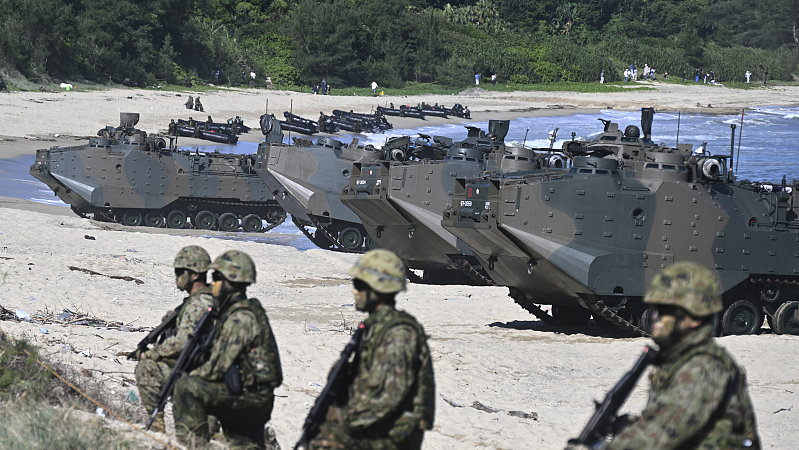
Japan-U.S. joint military exercise by the Self-Defense Forces and the U.S. military in Isen, Kagoshima Prefecture, Japan, November 18, 2022. /CFP
Japan-U.S. joint military exercise by the Self-Defense Forces and the U.S. military in Isen, Kagoshima Prefecture, Japan, November 18, 2022. /CFP
Over 70,000 people across Japan signed a petition, demanding the Japanese government to retract its plan to boost defense spending. The petition was submitted to various political parties on Wednesday.
The Japanese government has envisaged a five-year plan from fiscal 2023 to boost defense spending to 43 trillion yen, or about 328 billion dollars in 2027, up more than 50 percent from around 27.47 trillion for its current five-year plan from fiscal 2019. The defense spending plan is a break from its former defense budget principles that have stood for nearly half a century and will raise its defense spending from one percent of the GDP to two percent in five years.
To find stable funding sources for the defense spending plan, Japanese officials intend to raise taxes which has triggered a backlash from businesses and the broader public.
Wednesday's petition was organized by a group of scholars, lawyers and journalists and was launched online last month. They said that more defense spending could impact administrative measures to raise the country's birthrate, wage increases and financial support for single-parent households.
Some of these policy critics said that the government's decision to buy missiles with taxpayer money came from nowhere, and the decision should be discussed extensively.
Some worried the new budgets will involve the possibility of pre-emptive attacks on enemy bases.
It's reported that one of the main goals of Prime Minister Fumio Kishida's government's sharp increase in military spending is to introduce advanced military weapons that can strike directly at enemy missile launch sites, such as long-range missiles bought from the U.S. and others manufactured in Japan.